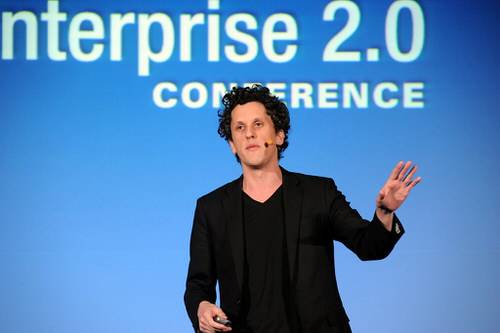
With the filing of documents with the SEC, Box is officially on its way to becoming a publicly traded company. The maker of online file-storage and collaboration tools has seen dramatic growth over the last few years, driven by enormous marketing and sales spending.
That model doesn’t seem to be sustainable: Box lost $158.8 million on revenues of $124 million in the most recent fiscal year. Commissions alone accounted for a tenth of that loss. Sales and marketing activities accounted for the bulk of the company’s expenditures and headcount. It has recorded a loss every year it has operated.
That strategy catapulted Box’s sales upwards and made it a credible force in selling to businesses. But to close the gap between earning and spending, Box will have to find a cheaper way to sell.
Developers, Developers, Developers (Repeat As Necessary)
The good news: It may already have one, clearly telegraphed in the IPO prospectus it filed Monday.
Box mentions the word “developers” 50 times in its S-1 filing, and “platform” 120 times. Its best hope for breaking its dependency on sales and marketing spending lies in those words.
Already, Box partners with companies like NetSuite and Salesforce, providing an underlying cloud-storage service for files and documents. For example, joint customers of Box and Salesforce use Box to embed contracts and sales presentations in a Salesforce customer record.
One way Box could help break this cycle is by working more closely with the companies it partners with such as NetSuite and Salesforce. Turning Box into a so called platform with which other businesses could then build off of is a stated part of the company’s growth strategy as laid out in its S-1 SEC filing. For NetSuite’s accounting service, Box stores invoices.
Getting Vertical In San Francisco
Right now, there are about 20 companies Box integrates with off the shelf. That’s a well-cultivated developer ecosystem, but arguably just the beginning for Box. At the South By Southwest Interactive conference earlier this month, Box CEO Aaron Levie talked about his ambitions for Box to enter vertical markets like healthcare and hospitality through third-party developers who will build specialized apps on top of Box.
The role model here is Microsoft, which has a large salesforce but whose efforts are magnified by the vast number of developers who build on top of Windows, Office, and Exchange. Those services and apps make Microsoft’s core products a far easier sell, since they’re all but required to run other business apps that interoperate with them.
These efforts will be on display at the Box Dev conference, which takes place this Wednesday in San Francisco. It’s hard to see how Levie could have timed this better. Now he just has to get up on stage and say “developers” fifty times.
Photo by E2 Conference
















